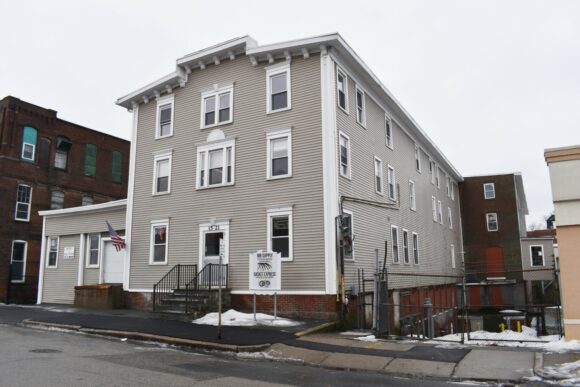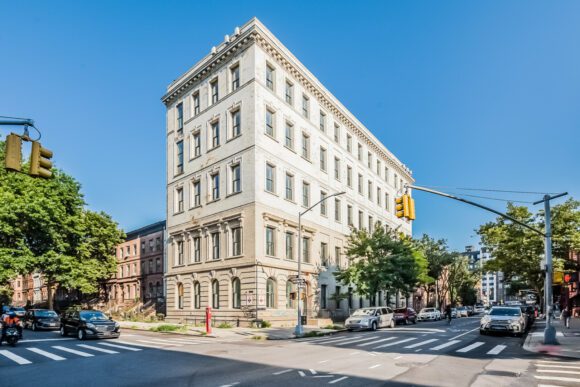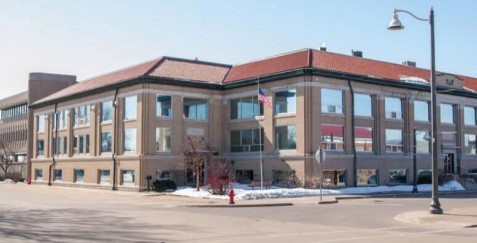North Avenue Educational Hub
106
Jobs Created
$1,590,147
Tax Impact
$4,506,639
Income Generated
$6,081,699
GDP Added
$12,012,093
Output Generated
Before it became the North Avenue Educational Hub, Baltimore, Maryland’s historic Robbins Dancing Building hosted several different businesses since its construction in 1909. In its early years, the building was home to a luxury car dealership and an upscale dance academy, followed by a series of restaurants and nightclubs. Often referred to as the Birthplace of Baltimore Club Music, Odell’s nightclub was perhaps the most iconic tenant, hitting the scene at the height of the disco era. The building fell to disuse in 1992, sitting vacant until nonprofit developer Jubilee Baltimore and Property Consulting Inc., secured its purchase in 2017. Thanks to Historic Rehabilitation Tax Credits (HTC) and New Market Tax Credits (NMTC), the Robbins Dancing Building is now the North Avenue Educational Hub, home to Arts for Learning Maryland and Code in the Schools, two Baltimore-based nonprofits designed to enhance the quality of education for local youth. This project supports the ongoing development of Baltimore’s Station North Arts District into a vibrant and thriving arts and entertainment center.
A Brief History
Constructed in 1909 on what is now North Avenue in Baltimore, Maryland, the Robbin’s Dancing Building was one of the street’s first commercial businesses. It first housed the Auto Outing Company, a luxury Buick sales and service station, on its ground floor. Upstairs was Tuttle’s Dancing Academy, which taught generations of Baltimore’s upper class, including Wallis Simpson, the Duchess of Windsor. The commercial corridor originally catered to a wealthy clientele, leading JM Robbins, the owner of Auto Outing Company, to rebrand as Robbins Buick to promote an increased focus on car sales. Unfortunately, Robbins was forced to close his doors soon after the Great Depression in 1929.
By the late 1930s, the car dealerships and luxury storefronts had moved from North Avenue, allowing for more practical businesses like movie theaters, restaurants and dance halls to take their place. The neighborhood could now accommodate its growing middle-class community, offering affordable entertainment options easily accessible through Baltimore’s streetcar network.
The building hosted several dancing venues after the area’s economic shift, including the Capri Three nightclub and Odell’s. Opened in 1976 by entrepreneur Odell Brock, Odell’s was Baltimore’s premier discotheque, often described as the birthplace of Baltimore Club Music. Odell’s was much more than a dance club, however. Brock offered a sense of community to his patrons, making people feel accepted and a part of something special. “You’ll know if you belong” became the club’s unofficial slogan, hosting widely attended theme nights and serving as a refuge of sorts for Baltimore’s LGBTQ community through the 1980s. Odell’s closed in 1992 after changing hands several times, remaining vacant until nonprofit developer Jubilee Baltimore and Property Consulting Inc., purchased it for restoration in 2017.
About the Rehabilitation
During rehabilitation, the former nightclub’s 18,500 square feet of space was repurposed as the North Avenue Educational Hub to house two nonprofit organizations focused on enhancing the education of local students. The building, made of poured concrete and steel, was designed by architect Charles Anderson in the Tudor Revival style. Complete with diamond-shaped windowpanes, Tudor-pointed arches and a cross-gabled roof, the building closely resembles an Elizabethan inn. During the rehabilitation, new windows were installed to replicate the single-surviving windowpane, the exterior was repainted with a more vibrant color scheme featuring warm greys and yellow, and the interior was renovated to accommodate two new tenants. Various artifacts and memorabilia were provided by the Brock family to be showcased in the building, honoring the building’s history and positive impact on the community.
About Arts for Learning Maryland
Founded in Baltimore in 1950, Arts for Learning Maryland (formerly Young Audiences of Maryland) is a nonprofit organization devoted to enriching the lives and education of Maryland’s youth through educational and culturally diverse arts programs. The nonprofit partners professional teaching artists from all disciplines with educators, schools and school districts to provide over 300,000 hours of learning in, through and about the arts to more than 185,000 Maryland students each year. Arts for Learning believes integrating the arts into the classroom can mitigate the challenges caused by the large focus schools place on standardized testing and the narrowing of their curriculums. Learning through the arts inspires and empowers students to think creatively and engage in the learning of all subjects in a new way. This helps foster a love for learning and promotes the development of creative and problem-solving skills needed to succeed in school, work and life.
About Code in the Schools
Code in the Schools works within the City of Baltimore to eliminate structural barriers and inequities in education and industry by expanding access to quality computer science education and building pathways from school to jobs and higher education. Code in the Schools supports youth traditionally under-represented in technology fields through after-school programs, summer camps, online learning courses and professional learning workshops designed to cultivate advanced technology skills needed to thrive in the 21st century.
Community Impact
The rehabilitation of the Robbins Dancing Building into the North Avenue Educational Hub has created a wealth of opportunities for local students. The programs and courses offered by its new tenants and their location within the City’s Station North Arts District provide families with a near one-stop shop for critical skill-building activities and immersive cultural experiences. By repurposing the former nightclub through the HTC and the NMTC, the property’s unique history – that set the stage for what North Avenue is today – was preserved, allowing future generations to learn and appreciate its important story. Valuable resources needed for new construction were also conserved through rehabilitation. Additionally, its redevelopment needs plus the introduction of new businesses create jobs and support the ongoing economic growth of Baltimore’s celebrated Station North Arts District.
About Jubilee Baltimore
Jubilee Baltimore is a nonprofit that develops affordable housing, market-rate housing and commercial properties with extensive experience in historic renovation and community planning in Baltimore, Maryland. With hundreds of historic restorations, Jubilee is Baltimore’s leading source for historic tax credit consulting. In addition to their own projects, Jubilee Baltimore works with homeowners and developers in Baltimore City’s historic neighborhoods to restore and repair historic properties. Jubilee Baltimore has played a key role in building the Station North Arts and Entertainment District, having also developed two apartment buildings that provide affordable housing specifically for artists, and The Centre, a home to several art-focused organizations that has served as a catalyst for further revitalization efforts in the community.
About Cross Street Partners
Cross Street Partners served as the development consultant for the historic rehabilitation of the Robbins Dancing Building. Cross Street Partners is a vertically integrated real estate company focusing exclusively on rebuilding communities by creating vibrant, urban mixed-use neighborhoods built on a foundation of innovation and entrepreneurial activity. Cross Street believes in developing neighborhoods, not just buildings. Cross Street specializes in adaptive reuse of historic properties, brownfield remediation, sustainable design and building practices, and transit-oriented development.


